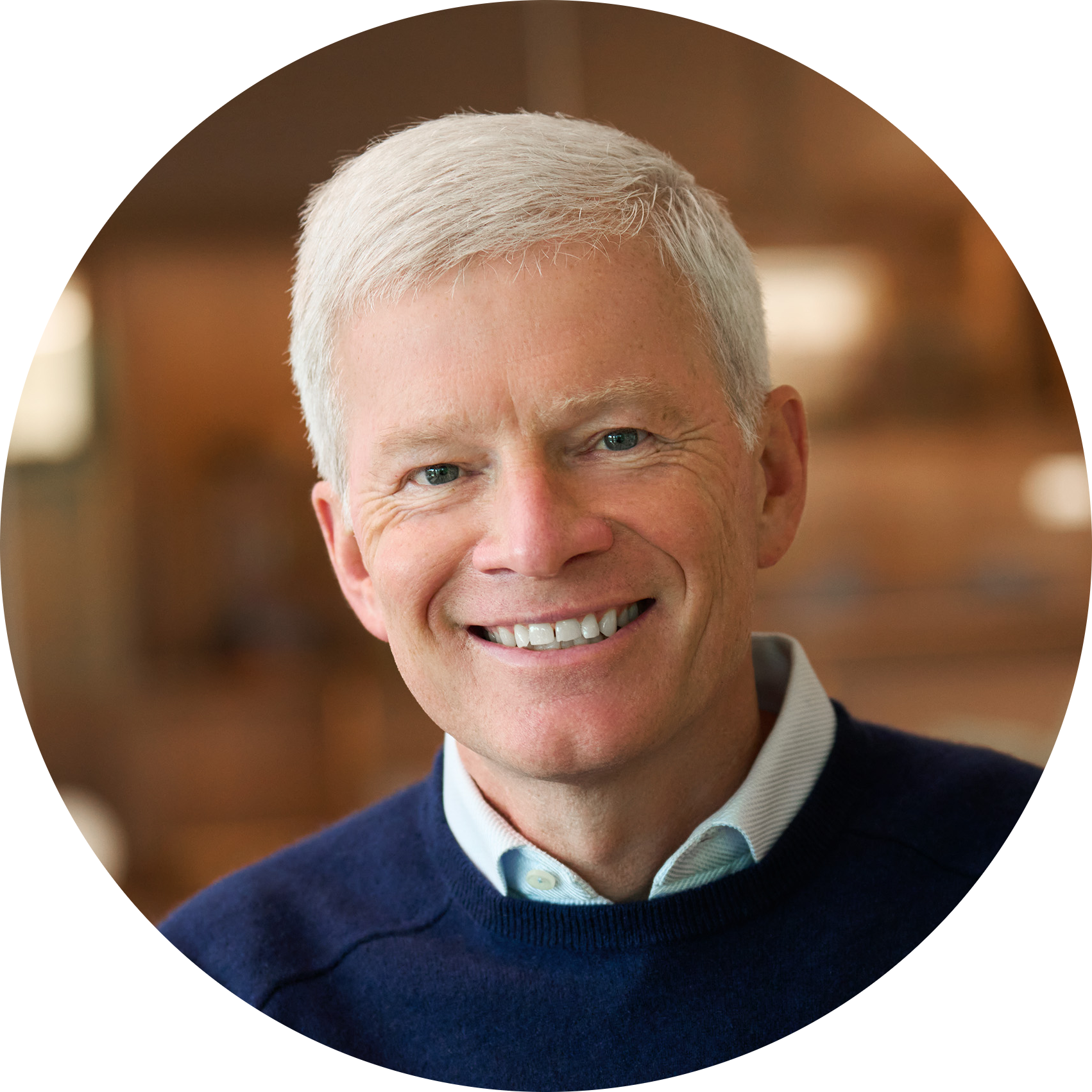Summary
-
By 2050, the world’s population will exceed nine billion, increasing demand for food — even as an estimated 730 million remain undernourished.
-
At the same time, climate change is putting pressure on food production through more frequent droughts, floods, and extreme weather.
-
Meeting these challenges requires solutions that help us grow more food while minimizing impacts to the land and water we rely on.
-
At Cargill, we understand that food security, climate, water, biodiversity, and farmer livelihoods are deeply connected — and that agriculture can help address these challenges through innovation, technology, education, and collaboration.
Messages from our CEO and CSO

"We do the right thing, we treat people with dignity and respect, and when challenges arise, we reach higher to deliver solutions."
Brian Sikes
Board Chair, President and Chief Executive Officer
2025 Highlights
$69 million
invested in efficiency and other sustainability capital projects within our operations
91 billion
liters of water restored in water-stressed regions
7.7 million
farmer trainings delivered since 2017
144 million
meals provided globally through our corporate giving efforts
20.9%
reduction in Scope 1 and 2 emissions from 2017 baseline, exceeding our goal
2.5 million
acres transitioned to regenerative agriculture practices across North America since 2020
$110 million
invested in local communities around the world
77,000
employee and alumni global volunteer hours
¹ All information covers Cargill’s fiscal year 2025 (June 1, 2024 – May 31, 2025), unless otherwise noted.
Strategy
As a company that sits at the center of the global food system, Cargill plays a unique role in connecting farmers, food producers, and consumers. This vantage point makes it clear that the future of food depends on a system that is productive, sustainable, and resilient.
Our strategy reflects how growing food impacts natural resources; how it moves from where it’s grown; and how we partner to expand access to nutrition, improve farmer and community livelihoods, and accelerate our customers’ progress on sustainability. The three focus areas where we believe we can make the greatest impact in creating a more resilient food system are Climate, Land and Water, and People.

Climate
Climate change and food security are inextricably linked. As weather patterns shift and extreme events become more frequent, the global food system is being tested in new ways. While it has proven resilient, continued progress will depend on efforts to both reduce emissions and build long-term resilience.
At Cargill, we’re taking proactive steps to meet these complex challenges head-on. Through our global reach and partnerships, we’re advancing practical, commercially-viable solutions that lower emissions, support sustainable practices, and strengthen the global food system.
Land and Water
The future of food depends on the resiliency of the earth’s natural resources. Productive farmland, thriving forests, and clean, available water are all essential to nourishing the world in a safe, responsible, and sustainable way.
By partnering with farmers, communities, customers, and non ‑governmental organizations (NGOs), we’re scaling solutions that protect ecosystems; improve water access and quality; and reinforce the agricultural foundation that billions of people depend on. Together, we’re working toward a more resilient food system that supports people and the planet for generations to come.


People
At Cargill, we are powered by people — our supply chain, farmers, customers, communities, and the 155,000+ employees around the world working to meet our business goals. Across the globe, we focus on their safety, well-being, and prosperity so that we can achieve our purpose of nourishing the world.
People drive agriculture forward. We know that our employees, farmers, communities, and customers expect us to create a positive workplace and stable supply chains. We take an integrated approach to keeping our employees and customers safe, advancing farmer livelihoods, and addressing human rights to continue building a more resilient food system.
Responsible business
Community Impact
Thriving communities are essential to a resilient food system. That’s why we invest in the places where we operate and source — working alongside our partners, customers, and employees to deliver locally-tailored solutions that strengthen livelihoods and meet community needs. By supporting food access, nutrition, and economic opportunity, we help foster a stronger workforce, secure supply chains, and create long-term shared value.
Ethics and Compliance
Cargill’s customers, employees, and communities count on us to uphold the highest ethical business practices. We embed ethics and compliance into our business and culture, which drives our business conduct and strengthens our reputation as a partner of choice. From our Code of Conduct to our Corporate Human Rights and Environmental Due Diligence Policy, we seek to foster trust and transparency.
Impact Scorecard
We have set science-based targets and invested in bold action to deliver on our ambition. We are committed to reporting progress against those goals, and to expanding transparency about the impacts of our operations, products and services, and supply chains around the world.
Reporting Hub
Visit our Reporting Hub to access additional information and reports on ESG topics that demonstrate progress towards our sustainability commitments.
Stay informed
Cargill Connection is our newsletter for global updates on a range of sustainability and corporate responsibility topics, everything from climate change to food security, water stewardship to community engagement and much more.


 Generating and downloading your custom report.
Generating and downloading your custom report.